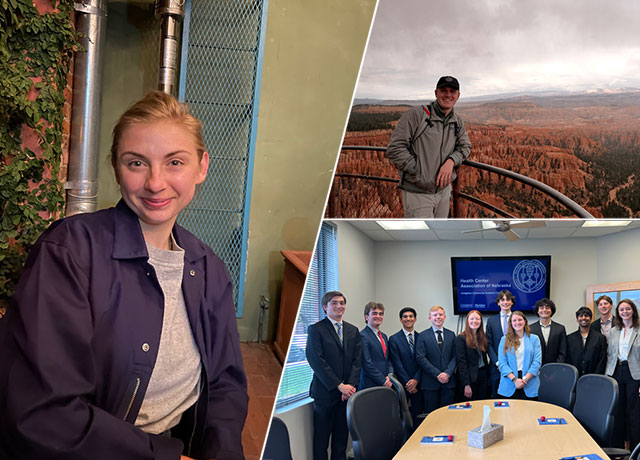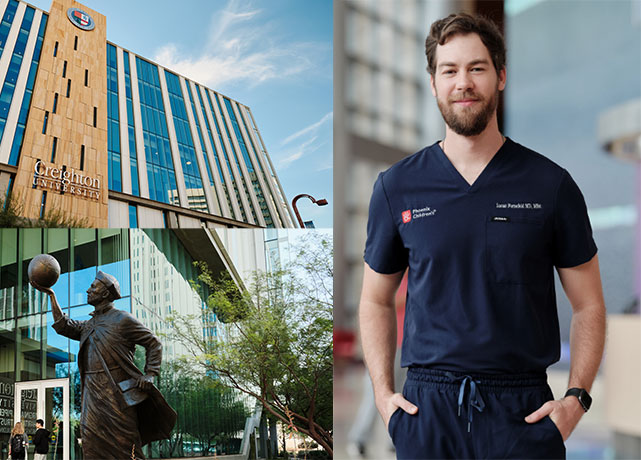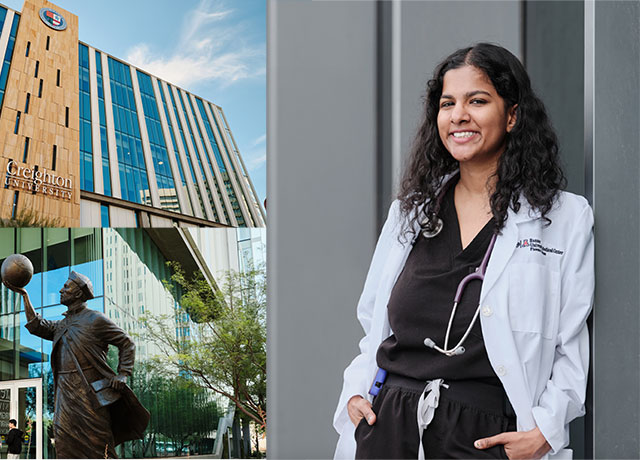Featured Testimonial About Creighton University
I am blessed to be on people's journeys through hard life transitions. I get the opportunity to really support people and help them lift themselves up by living healthier.
By Jon Nyatawa
A grieving woman sat next to the hospital bed in the emergency room where her husband had just taken his final breath. That’s when Lea Pascotto quietly opened the door and walked in.
Was this where she was supposed to be? Here? To be the one called to comfort and support individuals who experience loss? To help people navigate grief?
It was just the Creighton graduate's second shift on call as a chaplain at Naples Community Hospital. Just a few months prior, Pascotto, BA’99, was an expert fundraiser, so far removed from anything resembling this type of devastating trauma. During her childhood, Pascotto was always an emotional wreck when she even tried to contemplate death.
In the hospital room, she stopped for a moment to pray.
“I just remember thinking right then, ‘God, you know what you're doing,’” Pascotto said. “I prayed, ‘If you're calling me to do this work, then I'm walking with you.’”
That was three years ago. Pascotto’s career path has indeed shifted in a way she did not expect. But she’s grateful. She now realizes that she’s very well-suited for this role, and she credits her experiences at Creighton for this.
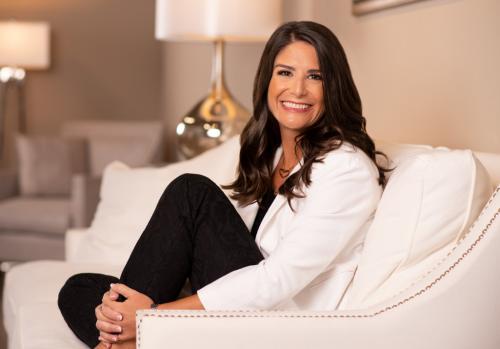
Pascotto is the Manager of Supportive Care for Avow, a Florida-based nonprofit organization that provides hospice care, grief support and educational programming for people experiencing life transitions. She is Avow’s pediatric chaplain, and she also manages the adult and child bereavement programs.
Her job connects her to others when they’re most emotionally vulnerable, when they need help picking up the pieces.
“I work in death and dying and sometimes people will say, ‘Gosh, that must be really depressing’ or they’ll ask, ‘How do you do it?’” said Pascotto, who is also a certified life coach. “But you know what? It’s not depressing at all. It is life-giving.
“I am blessed to be on people's journeys through hard life transitions. I get the opportunity to really support people and help them lift themselves up by living healthier. That is a blessing.”
It’s the kind of impact Pascotto always hoped she could have on others. But it took a while to get here.
She vividly remembers the anxiety she felt during her final few weeks as a Creighton undergrad, unsure of what the future would hold. There were long prayer sessions inside St. John’s Church. She often recalled (and still does think back on) words from Fr. Richard Hauser, SJ, when staring at a life crossroads.
“When you talk about discernment, one of the techniques that Fr. Hauser taught us was listening to your own body and the energy in your body. That is the Holy Spirit working through you,” Pascotto said.
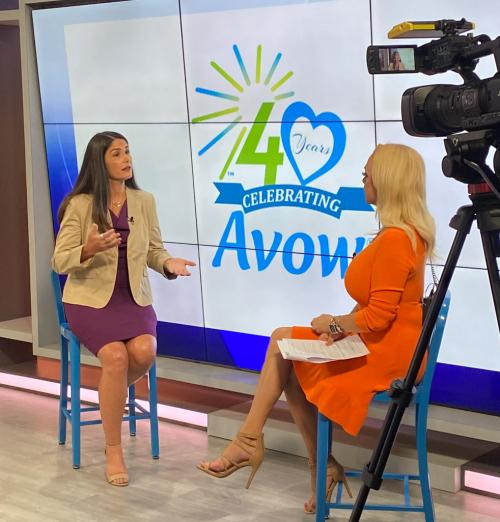
She learned back then, too, the importance of identifying your vocation and making a positive impact. Pascotto was raised Catholic. But her first introduction to Jesuit principles came during her freshman year, and they immediately resonated. Soon she moved away from her nursing degree path and started getting more involved in ministry.
“I think a lot about the Jesuit philosophies and being your authentic self, and why our society tries to cover up who you really are,” Pascotto said. “Be the person that God has created you to be. That is often what is going on in my head, especially with I counsel others.”
After Creighton, Pascotto went to Seattle for a lay ministry program and a teaching job at Seattle Prep, a co-ed Jesuit high school. Then it was off to Boston College for a double master’s in pastoral ministry and counseling psychology. She worked as a teacher, campus minister and the director of religious education at a church and spent a few years fundraising for private schools.
All the experiences she picked up along the way blended with the foundation she nurtured at Creighton. And it landed her back home, in a position where she uses all her skills to expertly aid people in need.
“We live in a society that doesn't like to talk about death, doesn't like to talk about grief, doesn't really like to talk about mental health,” Pascotto said. “That's kind of changing. And because of Creighton, I'm so passionate about people being their authentic selves and setting that foundation to rely on good coping mechanisms. I am blessed to be called into this work.”
